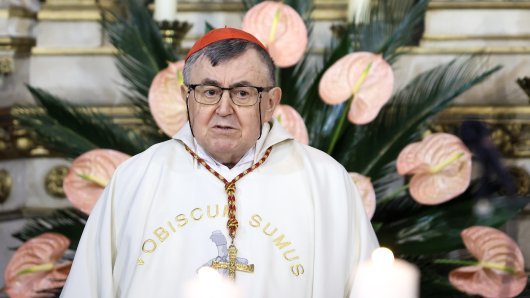The government in 2012 managed to reduce the budget deficit, increase tax discipline and meet the EU fiscal rule, Finance Minister Slavko Linic said at a Cabinet meeting on Thursday.
The meeting discussed, among other things, a report on the execution of the 2012 state budget and the application of the fiscal rule. Because of the importance of these two items, Linic had moved that the Value Added Tax Bill be taken off the agenda of today's meeting, which was accepted.
Speaking of the macroeconomic situation in the country, Linic said GDP had declined 2% in real terms last year, mostly due to a 3% fall in household spending, a 4.6% drop in gross fixed capital investments and a 0.8% decline in government spending.
Under such circumstances, the government moved to ease the tax burden on businesses, which was offset by increasing taxes on consumption, the cost of which was carried by citizens, he said.
Total budget revenues in 2012 amounted to HRK 109.8 billion, up 2.3% in relation to 2011, with tax revenues increasing 5.3% to HRK 64.3 billion. Linic said that this was primarily the result of a better collection of payments and increased tax discipline.
Revenues from VAT rose 7.8% to HRK 40.7 billion, while revenues from contributions fell 2% to HRK 37.8 billion. Linic said that despite the reduction of the health insurance rate from 15% to 13%, revenues from contributions fell less than expected, which indicated positive results of the regulation that forbids payment of salaries without contributions.
Budget expenditures totalled HRK 119.8 billion, down 1.6 billion in comparison with 2011. Linic said that savings were made in all expenditure categories, in the total amount of HRK 2.8 billion, except in financial expenses (interest) which rose by HRK 1.2 billion.
Expenditures on employees were HRK 22.4 billion, or 374.4 million less than in 2011, payments to citizens and households amounted to HRK 64.4 billion, of which pension allowances accounted for 35.1 billion, while expenditures on subsidies totalled HRK 5.8 billion.
In 2012, the consolidated general government deficit was HRK 11.2 billion, or 3.4% of GDP. The bulk of the deficit, or 3% of GDP, related to the government budget.
As for the fiscal rule, which mandates a reduction of the proportion of general government expenditure in GDP by one percentage point annually, Linic said that according to the methodology used by the EU (ESA 95), the total general government expenditure was HRK 139.5 billion, or 41.3% of GDP. Its share in GDP was reduced by 2.6%, so that the fiscal rule has been met, he added.
Considering the revised estimates of GDP for 2010, 2011 and 2012, expenditures in 2012 were 42.3% of GDP, or 2.1% less than in 2011, so that the fiscal rule for 2012 was also met after the revision of GDP figures for the previous years.
Prime Minister Zoran Milanovic said that the portion of expenditure showed that Croatia did not have a very expensive public sector, but stressed the need to increase its efficiency. He said that it was important to consolidate government finances and lay the ground for economic growth.
Deputy Prime Minister Branko Grcic said that the execution of this year's budget would primarily depend on revenues, that is on the state of the economy. He said that "discrete signs of recovery" could be seen, adding that the number of the unemployed fell from 375,000 at the start of the year to 342,000, 72,000 workers were hired in the first four months, which was a year-on-year rise of 18%, industrial output increased by 1.1% in the first quarter in relation to the corresponding period of 2012, the decline in retail sales slowed down, and there were signs of recovery of the building sector.
Grcic said that the government was producing results, expressing hope that 2013 would mark a turnaround and that growth would be recorded in the second half of the government's term in office.





































